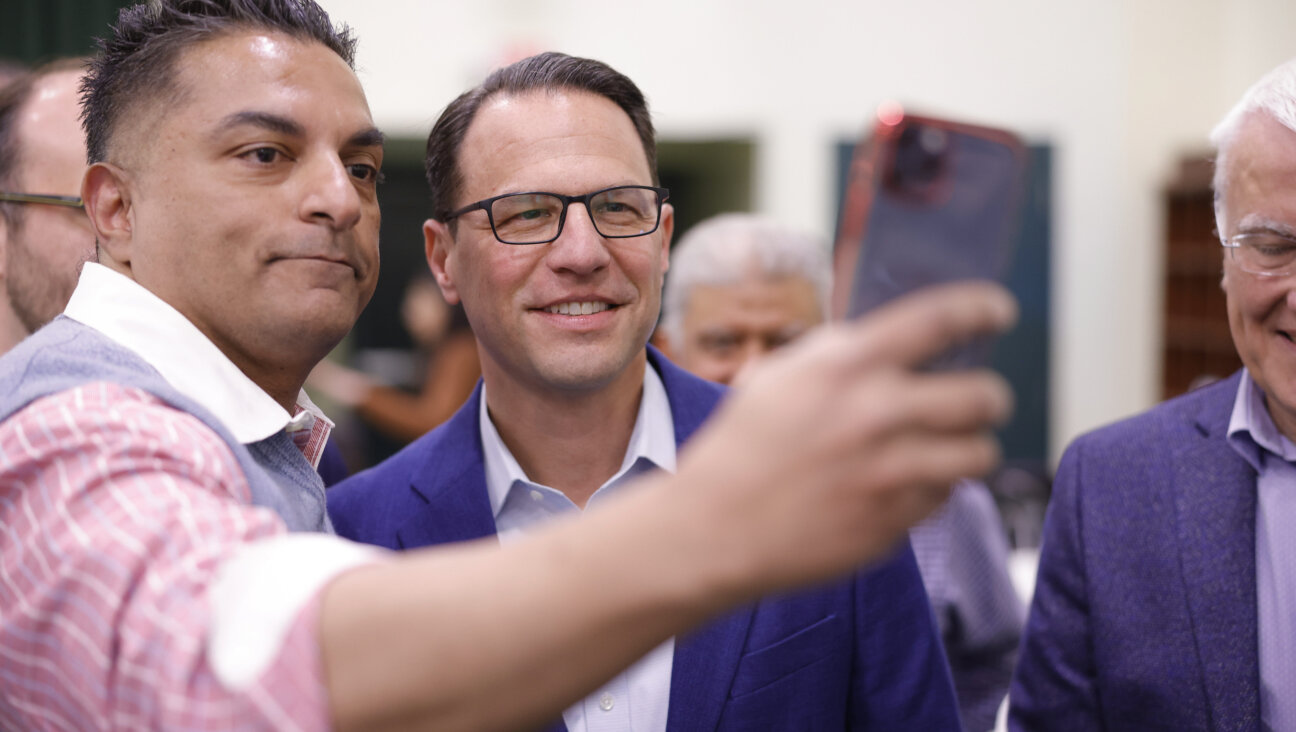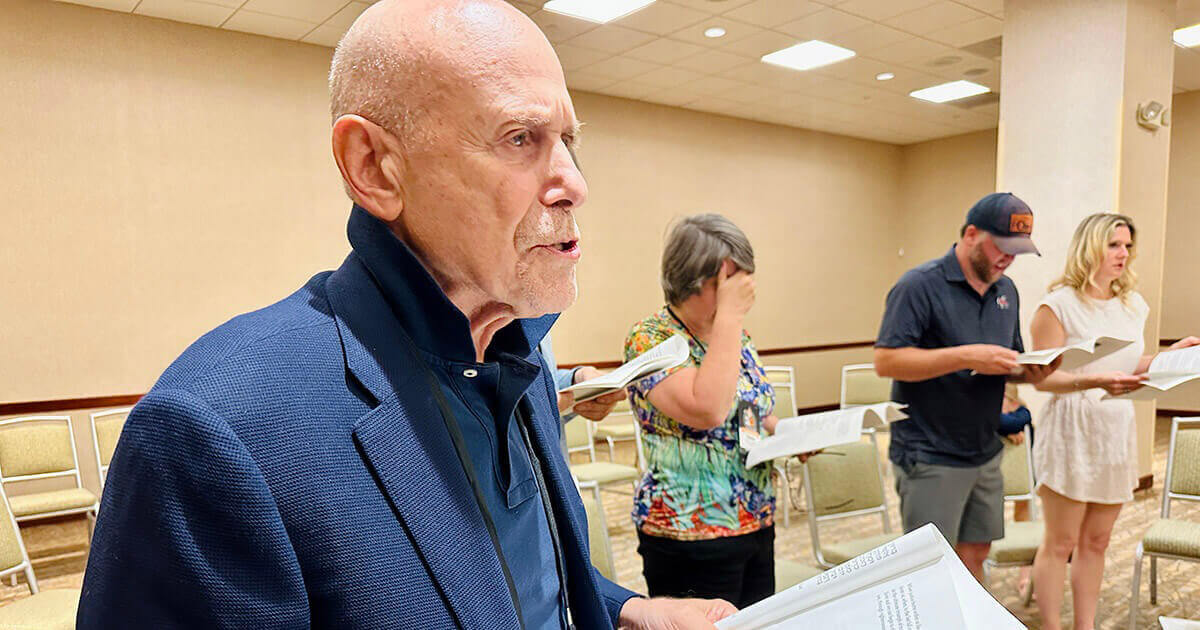Palestinian Clashes Escalate, Pressure on U.S. Mounts
Palestinian Authority President Mahmoud Abbas headed to the United Nations General Assembly in New York last month with a tentative agreement for a unity government with Hamas. The deal, however, quickly collapsed, and this week the mutual finger-pointing between Hamas and Abbas’s Fatah movement escalated into brutal clashes between their respective supporters.
While some diplomats and observers fault Hamas for reneging on several key issues and Fatah for its internal divisions, others are pointing the finger at the White House. According to this view, the Bush administration essentially doomed the deal by tying the hands of Abbas.
Europeans are so frustrated with the lack of movement on the Palestinian issue that they reportedly threatened last month to leave the Quartet, a diplomatic front comprising the United States, European Union, U.N. and Russia that is in charge of monitoring the implementation of the “road map” peace plan. The road map, which was issued in 2003 and laid out a series of steps to be taken by Israel and the Palestinians toward a two-state solution, never gained traction and critics have questioned the utility of the quartet. Arab countries, led by Saudi Arabia, have also been calling for more American engagement on the Palestinian issue, as well as on the Syrian track.
Secretary of State Condoleezza Rice was visiting the region this week to discuss those issues, as well as to marshal support for increased diplomatic pressure on Iran over its nuclear program. Rice, speaking after meeting with Abbas on Wednesday in Ramallah, said the United States was worried about the plight of the Palestinians and pledged to improve living conditions in the West Bank and Gaza Strip. She added that the U.S. will “redouble efforts” to help the Palestinians. Also on Wednesday, 135 former world leaders issued a call for urgent international action to comprehensively resolve the Arab-Israeli conflict, back the efforts of Abbas to form a national unity government and end the freeze on financial aid to the Palestinian Authority. The appeal is part of is part of a new global advocacy initiative by the International Crisis Group, which also involved brainstorming sessions with UN, Quartet and regional experts, as well as former senior American officials to stimulate a bipartisan rethink of US policy. During his stay in New York, Abbas was able to convince European countries that the Hamas-Fatah government platform entailed an implicit recognition of the conditions set by the quartet for endorsing and supporting a unity government: that Hamas renounce violence, abide by past Israeli-Palestinian agreements and recognizes Israel. But while Abbas was able to make significant headway in convincing the Europeans to judge the proposed unity government by its performance, he received a stern rebuke from the Bush administration, including from the president himself during a September 19 meeting. According to two sources who were briefed on the meeting, the president was adamant in rejecting the platform and issued a thinly veiled warning to Abbas, saying that Fatah officials would face the same boycott from U.S officials as Hamas representatives if the two movements were to form a unity government under the proposed platform.
The next day, Abbas restated the three conditions explicitly in his address to the General Assembly. Then, a day later, Prime Minister Ismail Haniya of Hamas denounced the demands and the talks collapsed.
Fatah officials are quick to point out that leading Hamas figures, first and foremost its Syrian-based exiled leader Khaled Meshal, had virtually torpedoed the unity government before Abbas made his trip to New York by denouncing some key points in the tentative agreements. Most notably, some Hamas leaders opposed proposals granting negotiation power to Abbas and supporting the 2002 Saudi initiative that offers Arab normalization with Israel in exchange for a two-state solution based on the 1967 armistice line. Riyad Mansour, the Palestinian ambassador to the U.N., attended the meeting with Bush and told the Forward that Abbas had put the deal on hold before leaving the region following criticism from Hamas leaders.
In addition, Abbas had received similar warnings in the preceding days from American diplomats based in Jerusalem and Rice that the platform was too vague and, as such, would not receive American backing.
“He knew going in that Bush would not support this,” said a source who met Abbas prior to the meeting with the American president. In addition to Mansour, Abbas was joined by veteran Palestinian negotiators Saeb Erakat and Yasser Abed Rabbo.
While Bush’s stance may have been a foregone conclusion, his alleged demeanor impressed upon his interlocutors that the administration would not be moved by the growing calls from Arab and European states to soften its stance. Indeed, several sources privy to the talks around the General Assembly noted that the Europeans were willing to give the unity government a chance to prove itself, creating some serious tensions between Washington and the other members of the quartet.
The Europeans, in fact, warned the administration that some substantive progress was needed on the Palestinian track to show that the Madrid Quartet was still relevant and only agreed to a so-called principals meeting, at the level of foreign ministers, after Washington pledged some movement, sources said. In the end, the Europeans eventually decided against a public split after Washington agreed to some strong language in a quartet statement and because of some lingering doubts about Hamas’ commitment to the unity platform, the sources added.
Mansour said Abbas tried to convince all his interlocutors in New York that the tentative agreement respected the three conditions, even though it did not spell them out explicitly.
“The Europeans showed more understanding that it was important to support the unity government initiative,” Mansour said. “He asked people to either support it or at least not oppose it. In the meeting with Bush, the Americans reiterated that they were committed to the language on the three conditions and did not support the deal. But it was a moot point by then since Hamas had already walked out.”
Asked whether the United States was blocking the deal, Mansour said the administration had indicated it would not oppose a government that clearly abides by the conditions set by the quartet.
In addition to the transatlantic tensions and the conflicting messages from the Hamas leadership, another element of the collapse of the unity talks is the opposition of senior figures associated with the Fatah movement to a unity government with Hamas. Interestingly, two of them, Abed Rabbo and Erekat, joined Abbas at the meeting with Bush.
“I am sure the president made a strong pitch about the criteria for allowing Hamas into the government but there are other factors involved” in the current stalemate, said Aaron Miller, a public policy scholar at the Woodrow Wilson International Center for Scholars and a former senior Middle East hand at the State Department. “Hamas hardliners and concerns among some Fatah officials also played a role.”
A message from our editor-in-chief Jodi Rudoren

We're building on 127 years of independent journalism to help you develop deeper connections to what it means to be Jewish today.
With so much at stake for the Jewish people right now — war, rising antisemitism, a high-stakes U.S. presidential election — American Jews depend on the Forward's perspective, integrity and courage.
— Jodi Rudoren, Editor-in-Chief






















